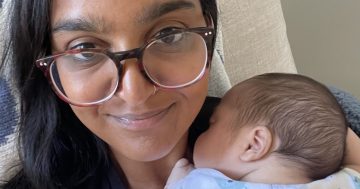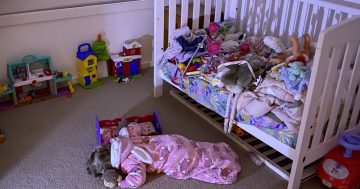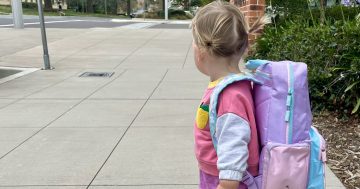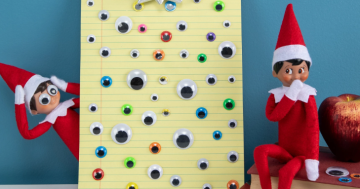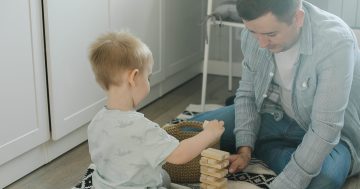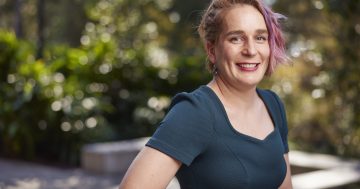
Reflections at Wallagoot Lake, south of Tathra on the NSW South Coast. Photo: Elka Wood.
I was talking to my friend, Nettie, last week and she told me that when she was about eight years old, she and her brother found a dead body, half-eaten by sharks, floating in the water near their home in Sydney’s northern beaches.
“We tried to tell an adult who told us, ‘It’s probably just a mannequin,'” she reflected. “So we found someone else to tell and they believed us. The police came and told us to rack off even though we’d been the ones to find the body.”
Despite this, there was no question of going home because, as was common at the time, the rule at her house was that kids had to be out of the house until dinner.
“My mother would put a tea towel on the mailbox when we were allowed to come back inside,” said Nettie.
I’m blown away by her recollections and can’t help feeling that she wasn’t very well taken care of.
Where was the trauma counselling? Or at least talking it over with a loving parent?
“Oh no, children were seen and not heard,” confirmed Nettie. “I tried to tell mum about the body but she didn’t listen. The only thing my parents would say to us at the dinner table was ‘sssh’ if we forgot that we weren’t allowed to talk.”
But Nettie and her partner, John, both feel they grew up in loving homes.
“We had good lives,” said John. “We never considered telling our parents anything, but we had our own lives. We had fantastic private lives.”
This is in stark contrast to my experience parenting and that of many of my peers, who overwhelmingly feel responsible not only for their children’s physical safety and wellbeing, but also for their mental health and minute-to-minute happiness.
We now know so much about all the ways children can be damaged, from suffering sexual abuse to bullying, that we feel increasing pressure to be omnipresent as parents to get them to adulthood unscathed.
Unfortunately, it’s not just our own feelings that guide the way we parent, but lashings of societal pressure – perhaps especially on women – which often lead to a river of guilt.
It’s a big swing from when Nettie and John were growing up.
This guilt leads to all kinds of weird behaviour, such as parents – like me – who ask their kids a zillion times a day, “You OK?”
As my kids get bigger, my biggest challenge is to leave them alone as I realise the frequent safety checks that were necessary when they were toddlers now only interrupt the flow of their play.
Mostly, we don’t need to give our kids more. The contradiction to the pressures of modern parenting is to back away and allow kids space to figure out how they feel about things on their own.
There’s such a fine line between giving kids airtime to talk things through and showing them you’re confident that they can handle it, whatever it is, by giving them time to explore on their own.
One thing I like to do is take my kids to a big open space and tell them I plan on making a phone call or reading a book or having a rest, and to not bother me.
The goal here is to be so boring that you force your kids to go and find their own fun while still being close by.
Of course, quality time with parents is important, and I’d like to think that if my kids found a dead body, they’d tell me.
Until then, there’s nothing better than the sound of kids clattering in for dinner, wet and dirty, with their pants blown out at the knees.
And I’m ready to listen wholeheartedly because I’ve had hours of peace, with no questions, no tugs on my hands or clothes, and no indignant squeaking.
“Now, can you describe the dead person for me, darling? Where exactly did you see it?”
Original Article published by Elka Wood on About Regional.












